You were looking forward to seeing the first timid sounds your baby makes turn into full-fledged words, phrases, and sentences. But what to do if, from the point of view of speech development, your child lags behind his peers? This article will help you understand what a child should say at 3 years old. How to correctly assess his actual speech skills and take timely measures.
A child’s speech at 3 years old should normally be sufficiently developed for dialogue, independent monologues, role-playing games. At this age, your baby will be able to:
- Tell us about yourself. Say name, gender, number of years (say in words and show on fingers).
- Make up correct sentences of at least 3-5 words. They will be with a pronoun, verb, noun and adjective (the presence of grammatical errors is a natural phenomenon).
- "Reduce" a word using a suffix (dog - doggie), make the noun an adjective and change the form as a whole.
- Use prefixes (arrive, leave, stop by), synonyms.
- Use generalizing words in conversation (dog+cat=animals, jacket+pants=clothes).
- Correctly pronounce almost all sounds with the exception of complex ones (“zh - sh”, “z - s”, “h - sch”, “r”, “l”).
How many words does a child speak at three years old? As a rule, the number of words actually used by a child ranges from 300 to 700. In total, the child understands and knows about 1,500 words
The vocabulary of 3-year-old children should be constantly replenished with new words. Be sure to follow the dynamics.
Delayed speech development in children 3 years old: 10 signs
Speech delay in a three-year-old child can manifest itself in the inability to pronounce 5-7 sounds correctly at once. At the age of 3 years, using this set of sounds instead of words is acceptable, but consultation and professional sessions with a speech therapist are required to understand exactly why the baby three years speaks poorly.
If your baby speaks faster than necessary, repeats individual sounds and syllables of a whole word, draws them out for a long time (“mmmmmmama”, “cuckoo”) - this indicates stuttering. Make an appointment with a speech therapist and neurologist. Exercise articulatory gymnastics, develop speech breathing.
- Be sure to take action if you notice that your child:
- Does not remember simple text, does not understand the text when read aloud, and cannot connect words to retell it.
- Does not hear quiet sounds, does not recognize their direction and source.
- Turns the TV volume up higher than the rest of your family.
- If such symptoms are present, the causes of speech delay in a 3-year-old child may be associated with hearing impairment. Visit a pediatrician, psychiatrist and psychologist, neurologist and speech therapist.
Some parents believe that their child at 3 years old is lazy to talk. And something similar to laziness can actually lead to the fact that a three-year-old child speaks little. If there are physiological and psychological reasons for the lag in speech development no, then the solution will be more frequent and prolonged communication with the child:
Create situations in which the baby cannot remain silent. Ask which of the two dishes he wants for lunch, whether he will go to the store with dad, or whether he will paint or sculpt. Nods, sounds and monosyllables are better than silence.
Give your child the phone when people he knows call. Your baby will eagerly talk to his grandmother on the phone, even if he is used to keeping silent during face-to-face communication.
Constantly discuss everything you see around you. On the way home, talk to your child about trees, passers-by, cars. Maybe not right away, but over time he will become involved in the conversation.
Develop the mobility of your tongue like a muscle, perform exercises to develop breathing, work with intonation, speech volume, and correct stress.
Before the eyes of parents, their child grows and develops. And everyone wants their child to become an intelligent and interesting interlocutor in the future.
However, the task of parents is not at all to force their child to study hard and read a lot. It is better to help him develop through joint exciting games.
You need to start playing with your child from early childhood. The baby will learn to listen, and soon he will begin to invent different stories, solve riddles, memorize poems, and clearly pronounce tongue twisters.
Multivariate games with speech tasks contribute to significant improvement general development speech. They will help the child replenish vocabulary, build grammatically correct speech.
Stages of speech development
At the age of three, the pronunciation of healthy child quite extensive. Children at this age notice mistakes in the conversation of other children or adults. You can create such situations yourself artificially, for the purpose of control, knowing...
It is worth asking the child to listen to a deliberately incorrectly pronounced word and give him the opportunity to correct the mistake himself.
These exercises help children learn to recognize elements of their native language: grammatical design of sentences, words, sounds.
At this age a child can do a lot:
- He communicates easily with adults;
- Actively asks his questions;
- He tries to answer the questions put to him;
- With the help of an adult, he can tell a familiar poem or fairy tale.
Even when a child does not yet pronounce certain sounds correctly (this is natural for this age), he must form correct ideas about speech norms, about how this or that word should sound, how to construct a sentence correctly, and correctly use various grammatical forms of words.
This age period The child’s speech develops quite rapidly, it is polished and improved. Gradually, children will master the correct sound pronunciation. Important condition speech development of a child of this age - communication with both adults and peers. Best conditions created for this purpose in children's institutions. If a child does not attend kindergarten, such communication should be organized for him at home.
For many children, speech develops quite slowly at this time, although they understand adults well, correctly show objects named to them, carry out actions, simple instructions (take, give, bring).
Fine motor skills
Finger games and exercises help the child develop speech. This is indeed true, because scientific research confirms that at the tips of the fingers there are nerve centers closely related to speech.
It is necessary to pay attention to the development of finger motor skills close attention, especially if before the age of 3 the child has not learned to put large beads on a string, cut paper with scissors, or sculpt from plasticine.
The more mobile a child’s fingers are, the better he will master speech. Finger games and exercises, massage of fingers and palms is liked by children of different ages. They arouse great interest in children and create a wonderful mood.
Such games will help accustom children to listening and studying rhymes, jokes, teach them to feel the rhythm, and understand the essence of what they heard. Articulatory motor skills are very closely related to fine motor skills of the hands. To develop it, it is enough to perform simple daily exercises listed below:
- Lacing;
- Fastening buttons;
- Stringing beads;
- Drawing;
- Application;
- Modeling;
- Coloring pictures;
- Connection by arrows different parts drawing.
All this will stimulate the baby to develop speech and prepare for writing skills.
Literature
3 years is a time of intensive acquisition of the sound, verbal and grammatical structure of the native language. Both the pace and quality of the formation of language knowledge, skills, and habits depend on the correct organization of this process.
At this age, parents usually begin to read simple rhymes and fairy tales to their child, accompanying the stories with actions and drawings. The principle of regular repetition must be maintained. For a child of this age, it is not the number of fairy tales read that is important, but their understanding.
 Fairy tales and poems must be read with intonation, making sure that the child compares the image in the picture with the story. After reading a fairy tale, you should ask the child: “Who did we read about?”, “What did he do?”, “What did he say?”
Fairy tales and poems must be read with intonation, making sure that the child compares the image in the picture with the story. After reading a fairy tale, you should ask the child: “Who did we read about?”, “What did he do?”, “What did he say?”
Works of children's literature are an extremely important source of filling children's vocabulary, developing an understanding of speech and the ability to independently express their thoughts.
Games for speech development the right approach on the part of adults they can work miracles: they will turn a lazy person into a worker, a Dunno into a Know-Nothing, an incompetent into a master. The game will be able to change the child’s attitude towards what seems extremely ordinary, boring and uninteresting.
If a child asks to play with him, you cannot refuse him. First, you need to familiarize yourself with the rules of the game and only then explain them to your child in your own words. If necessary, you need to have a preliminary conversation - this way the child will emotionally prepare for the game. You can invite him to read a poem or counting rhyme and the baby will learn them with you.
The child learns better with the help active actions and live free communication. This is the only way children will learn to pronounce sounds correctly. Verbal creativity should be encouraged. Every success of a child should be rejoiced with him.
Speech disorders
At this age, almost all children still speak incorrectly. They will replace one sound with another or “swallow” some sounds. It is rational to use tasks for the development of the speech apparatus: correct, accurate, coordinated movements of the articulatory organs, breathing.
These tasks will help prevent speech disorders or avoid those speech deficiencies that are already present.
If several sounds in your child’s pronunciation are impaired, you should definitely seek advice from a speech therapist - he will select the exercises that are necessary specifically for your child.
In the period up to 6 years, the child’s speech develops most intensively, and most importantly, it is amenable to change in speech deficiencies. Therefore, if such a problem exists, the sooner you turn to a specialist for help, the faster the baby will learn to pronounce words correctly.
There is no need to be embarrassed when seeking help from a speech therapist. Only thanks to the intensive joint work of the specialist and the child’s parents, the use of interesting and accessible techniques for the child, the process of mastering speech is normalized in children.
The development of the sound side of speech is impossible without a high level of development of hearing, auditory attention and memory. If a child perceives different sounds distorted by ear, then he will not be able to pronounce words correctly, and over time, he will not be able to write correctly.
Much attention should also be paid to the development of word structure. If your child skips or rearranges syllables, you should contact a speech therapist, as this may indicate the presence of a specific speech disorder.
Conclusion
The driving force of the process of mastering speech is hidden in human nature itself - the need for communication, and native language serves as the most comfortable and universal means for this. You definitely need to help the child, talk to him, and take your time. Let your baby enjoy the game. If something doesn’t work out for a child, you shouldn’t scold him for it. After repeated repetitions, he will definitely achieve success.
Many children at 3 years old can speak. Sometimes they are difficult to understand, but it is noticeable that speech gradually develops. A four-year-old child can speak quite well, although some letters and words are difficult to pronounce. However, some children have delays in speech development. Is this correct? How to help your baby develop speech? Read about this in the article.
Knowledge of a child at 3-4 years old
At this age, children already know a lot of words (about 2000). The child tries to speak correctly and clearly, like adults. Sometimes he doesn't do it very well. To raise the level of speech development, it is necessary to study a lot with children, communicate, play, draw and write.
Speech development in a 3-4 year old child is quite weak. However, the older children get, the larger their vocabulary. And at this age, the child knows and can do the following things.
- Says his first name, last name and patronymic.
- Knows the names of relatives and friends.
- Perceives images and describes any situation he sees.
- Speaks in simple sentences and gradually moves into more complex ones.
- Identifies objects into groups: a frying pan, a plate, a cup are dishes; a jacket, pants, a T-shirt are clothes, etc.
- Finds a sign of an object: a white window, a wooden table, a glass glass, etc.
- Knows the actions of a person or animal: an uncle is walking, a cat is sitting, a boy is running.
- Repeats what he heard.
- Retells a cartoon or fairy tale.
- He speaks not only loudly, but also quietly.
Speech development in a 3-4 year old child is special and individual. Some children know less words, others - more. So this is not an indicator. If you practice regularly with your child, you can get good results.
Features of speech development in children 3-4 years old
At this age, many children still do not know how to write stories or retell what they see. It is difficult for them to connect sentences, many mistakes are made: not only grammatical, speech, but also in the use of case endings.
Many children of this age still have incorrect pronunciation. They speak words slurred, making them difficult to understand. For example, children replace the sound “r” with “l”, and “sh” with “s”. Children find interchangeable sounds because they want others to understand them.
Speech therapists claim that these shortcomings in speech development are not terrible, so there is no reason to worry. Many specialists begin working with children no earlier than 5 years old.
The above-mentioned shortcomings are the peculiarities of the speech development of children 3-4 years old. There is no need for special correction yet, since the child is able to cope with his language barrier on one's own.
Diagnosis of speech development
Three-year-old children know and speak many sounds. At about 4 years old, a child masters more difficult letters - “s”, “z” and “ts”. He hears how the surrounding children pronounce sounds, and corrects the children if they pronounce them incorrectly.
Diagnosis of speech development in children 3-4 years old is carried out by speech therapists. They check the sounds.
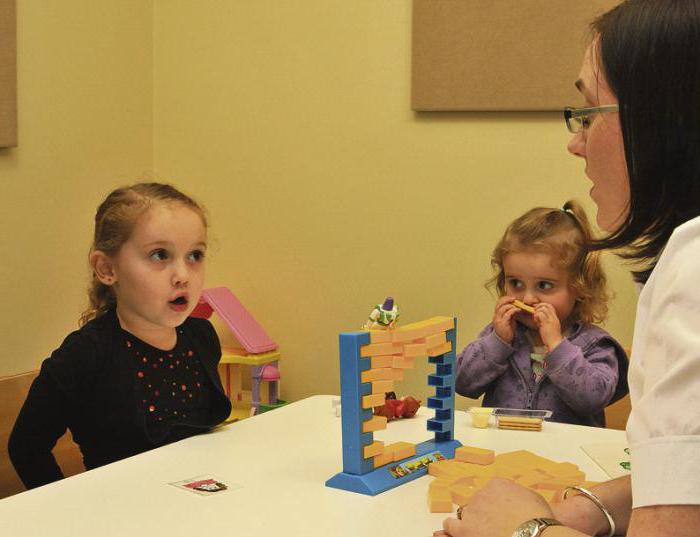
However, if desired, parents can also see all the positive and negative aspects speech of your child, and also draw appropriate conclusions.
After 3 years, children are well versed in colors and clearly understand plural and singular numbers. At this age, children strive to talk as much as possible. They are silent only when they sleep.
At the age of about 4 years, the child speaks more consciously. Parents and educators need to talk with the baby as equals. Then he begins to master speech faster, and his vocabulary expands very quickly.
Three-year-old children try not to use complex sentences because they are afraid that they will not be understood. By the age of four, the child’s fear disappears and he speaks more confidently. Now he knows that his listeners understand him.
It is necessary to constantly monitor the development of speech in a 3-4 year old child. The older children get, the more difficult it is to help them establish correct pronunciation.
Methodology 3-4 years
At this stage, the child’s sphere of communication expands, which means his vocabulary increases. However, many letters or sounds are still difficult to remember and pronounce.
It is very important to create the conditions in which speech development occurs in a 4-5 year old child. To do this, you need to pay attention to hissing sounds, whistling, hard and soft. As a rule, it is with them that many children have problems.
It is necessary not only to pay attention to the pronunciation of letters, but also to speech hearing. To do this, try to speak in different ways: loudly, quietly, quickly or slowly. When dramatizing a fairy tale, pay attention to expressiveness, voice and appropriate intonation.
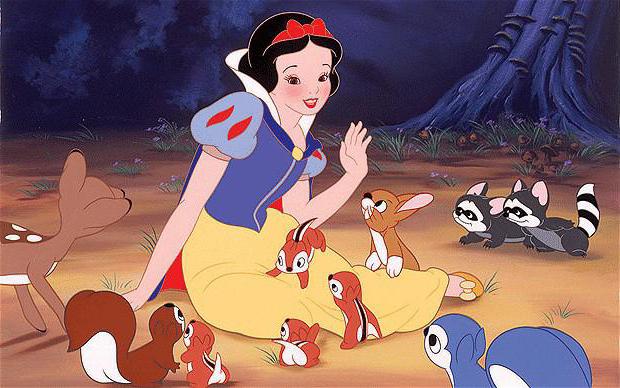
To work on education, you need to pay attention to:
- sound pronunciation;
- development of phonemic awareness;
- voice apparatus;
- moderate rate of speech;
- intonation.
In general, the speech development program for children 3-4 years old is complex. The child has difficulty pronouncing sounds. Try not to scold him, but only praise him.
When using the above methods, speech development in a 3-4 year old child becomes more active. Children begin to surprise adults with their knowledge and skills.
Correct speech development
As mentioned earlier, there is no need to contact a speech therapist until the child is 5 years old. Parents can pay attention to their baby themselves and help him develop speech. When you go out, try to talk about everything that comes your way. It could be an animal, a person, a plant, etc.
Children are interested in absolutely everything. Therefore, they easily remember what was said and expand their vocabulary.
Try to ask your child about his day or the cartoon he watched. The child must learn to retell. At first it will not work out well, but thanks to daily exercises, within a month you will see a positive result.
Read poems, tongue twisters, and riddles to your children as often as possible. At the same time, do not forget to play with small details. If your child doesn't know how to tie his shoelaces, teach him.
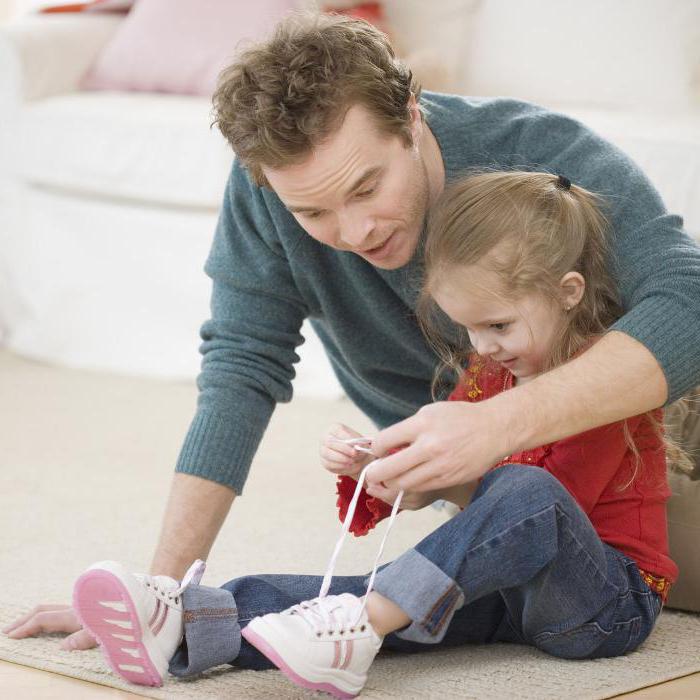
All these exercises for the development of fine motor skills will help your child begin to speak faster and correctly pronounce especially complex sounds.
Poems for speech development
A child needs to pay attention, and speech development is no exception. For faster achievement good results read simple and memorable poems for children 3-4 years old.
1. Kra-kra-kra - leave the yard.
As-as-as - it's going to rain now,
It-it-it - we don’t want to leave,
Zhu-zhu-zhu - I walk through puddles.
2. One, two, three, four, five - I want to count the crows.
One crow is sitting on a tree.
The second crow looks out the window.
The third crow shouts “kar” to the guys.
The fourth one drank all the nectar.
And the fifth crow wanted to burst the balloon.
3. Mukha bought boots, they turned out to be too big,
A fly went to the market and exchanged them for a samovar.
I treated all my friends to tea,
I just didn’t want to treat people.
Rhymes for children 3-4 years old should be understandable. They should contain many sounds that your child cannot pronounce. After reading one poem, ask your child questions on this topic. He must tell what he understood from what he read and what conclusions he drew. Parents can come up with simple poems themselves to practice with their little ones.
Learning through play
What provides the most effective development speech of children 3-4 years old? Games, of course. The easiest and interesting training guaranteed if you and your child make an alphabet coloring book. Of course, buying it is not a problem. However, do not forget that children love to make crafts on their own.
Game "Who's Talking?" interesting to many children. The mother names the sound of the animal with the desired intonation, and the child guesses. Then you must switch roles. In this way, the baby will develop speech.
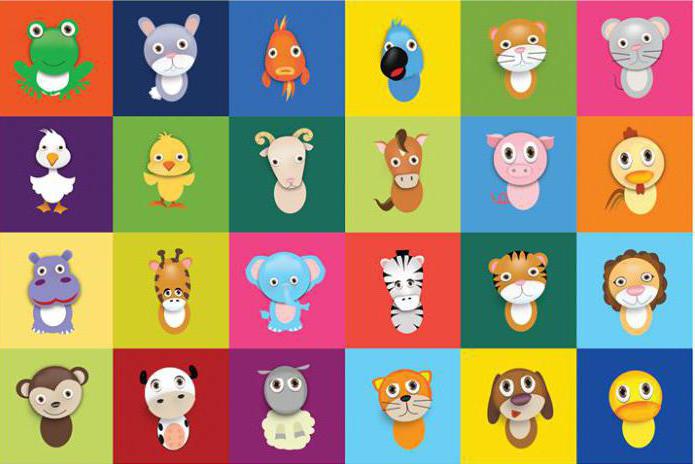
The game “Where is it” develops not only speech, but also attention in the baby. Place something on the table, under a chair, near the refrigerator, next to the sofa. Now ask questions. For example: where is the cup, where did the bear go, where is the ball? There can be many such questions. The child will also learn to navigate in space.
“Edible or not?” When you are preparing dinner and cannot pay attention to your child, ask him questions. For example, if you pick up a pan, ask: “Is this edible?” Further: “And fried meat?”, “And raw chicken?” etc.
"Difference between objects." Show your baby boots and slippers. Ask how they are similar and how they are different. It can also be the following comparisons: a fur coat with a jacket, a glass with a cup, a chair with a stool, etc.
The game “Describe the Object” will help your child develop attention and memory. Point to the bed. Let the child describe it based on your questions. What is this? What is it for? What color? Ask your child these questions about any item or product.
The above games help the child develop correct speech and the correct pronunciation of sounds. If you communicate with your baby every day game form, soon he will begin to speak correctly and clearly.
Why does the child not speak for a long time?
Some children are silent at two or three years old. Parents are worried and go to specialists to determine the cause. Doctors and speech therapists advise not to worry ahead of time. They claim that if a child is silent until the age of 3, this is normal. Perhaps the genes of the parents influenced.
If a child of 3.5 years old still does not want to talk, then it is necessary to seek advice from a neurologist, speech therapist, ENT specialist and pediatrician.
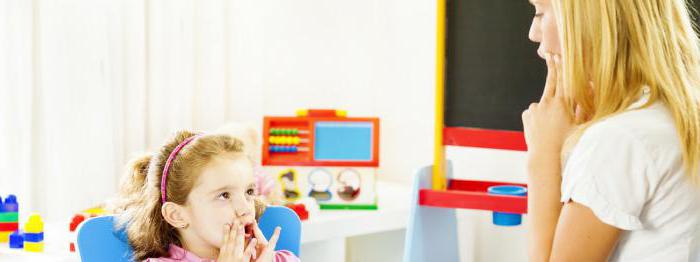
Very often, children who were silent at three years old can speak at 3 years 2 months. According to statistics, such a child begins to speak immediately in sentences.
There is an opinion that girls master speech earlier than boys. This is a myth. It all depends on the individuality of the child himself. The norms for speech development of children 3-4 years old cannot be the same. At this age, children know from 1500 to 2000 words. Each baby has his own individual supply. It all depends on the child’s personality and his mood.
Conclusion
Don't force your child to study if he doesn't want to. If he has Bad mood, then it will not show you good results. Engage with your baby when you see that he is ready to play with you.
Never scold a child if he is unable to say a word. He will start crying, you will be angry with him.
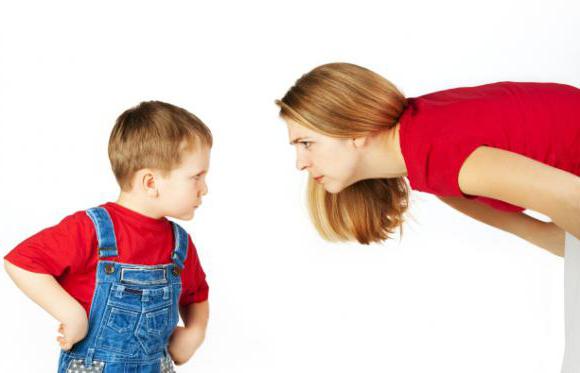
As a result, both mother and baby will lose their mood for the whole day. Children find it easy to learn. Try to praise your child, because then the baby himself will want to please you and please his mother with his success.
In the period from one to five years, the baby’s speech develops rapidly, especially in the third year of his life. This is logical and understandable! After all, the little one is growing up, exploring the world more actively, studying various objects, their structure, and becoming interested in their purpose. An important positive fact in the development of a child’s speech is that he attends a kindergarten or children’s development group. Being in a team is already a guarantee of development colloquial speech, and if you also work with the child at home, then success is guaranteed.
What should a child's speech be like at 3 years old?
1. Vocabulary is about 300 words
2. He speaks meaningfully: what is his name, names his gender and his age. Moreover, age speaks by showing the number of years with your fingers.
3. Pronounces words more accurately and clearly. Now not only mom or dad can understand what he is saying, but also strangers. For example: a child says “tul” to a chair, “kapet” to a bag, “koy” to an open one.
4. Lighter versions of words have practically disappeared from his vocabulary. For example, if a baby wants to go outside, he no longer says: “Too-too,” but can say: “I want to go to the street.”
5. In his speech he uses verbs and adjectives. Moreover, if he came, then he says: “I sat down.”
6. Understands and uses generalizing words. For example: he calls a bowl, spoon, cup utensils; dolls, cars, balls - toys.
7. Study parts of objects and master their names. For example, a three-year-old baby takes a doll and names it, showing where its eyes are, where its nose is, where its hair is...
8. Invents words convenient for expressing his thoughts. So, for example, in order not to say that he rode on a swing, the baby says that he was on a merry-go-round.
9. Pays attention to the fact that another child says this or that word incorrectly and even tries to correct it.
The speech of children at 3-4 years old improves by the fact that they begin to correctly pronounce the letters “ch”, “sch”, “zh” and “sh” and, if they notice incorrect pronunciation, they try to correct themselves, which is very commendable. They can also retell the plot of their favorite fairy tale “The Ryaba Hen”, “Turnip”, “Teremok”, etc.
The development of speech in 3-year-old children depends on many factors and circumstances.
The main ones:
- regular communication between the baby and loved ones. Moreover, adults should not “little”, but speak words clearly and correctly.
- interaction with surrounding objects indoors, nature outdoors, enrichment of his inner world and development life experience. Try to get your baby to pay attention to natural phenomena, actions of people, animals or birds. While walking, tell your child: “Look how the clouds float, how the car drives, how the sparrow jumps, how the guys play football...!”
- talking with your child about the past. When dad comes home from work, he may ask: “What did you eat? Where did you go? Who did you play with?...” Grandparents and acquaintances who don’t see the baby every day can ask about what they do in kindergarten, what verses are taught, etc. This will not only have a positive effect on the baby’s speech, but also on his memory and thinking.
- games, activities with the toddler, as well as watching cartoons. During or after such events, the child and the adult communicate, discuss and share their impressions. This is very important not only for speech, but also for the overall development of the baby.
- viewing pictures and photographs together with the baby. You point to the image and the baby says the name. It is advisable to take pictures depicting animals, favorite fairy tales or cartoon characters etc. Of course, it’s better to take family photos. The baby will be happy to point and say: where is dad, where is mom, where is he...
- reading fairy tales and stories to the child, and then discussing and retelling the material read.
- learning simple poems and songs with your child. Thus, the little one will train his memory, enrich his speech, develop rhythm and thinking.
- You can also find on the Internet a sufficient number of videos with educational activities for speech development, where qualified children's speech therapists show and tell how to properly conduct classes with a baby. Here is one of these video lessons:
It happens that a child is 3 years old and does not speak! Why?
There are different reasons:
1. Neurological disorders and birth injuries that affect the cerebral cortex. In this case, the baby undergoes regular examination by specialists, and in particular by a neurologist.
2. The baby is sick with autism - a mental illness expressed by the child’s reluctance to contact anything or anyone.
3. The little one has problems with his hearing aid. Some parents do not even suspect that their child has such a pathology.
4. If you did not work with the baby or paid little attention to it. I mean basic communication with him, reading books to him, looking at pictures.
5. The baby’s protest against excessive care and attention. If the toddler is regularly forced to repeat the text, continuously asked questions that he must answer, etc., then the baby gets tired, angry, and as a result he develops negative neurosis.
What to do if a child does not speak at 3 years old?
You, dear parents, need to act as soon as possible!
Namely:
- show the baby to a psychologist, neurologist and speech therapist to find out the reason for the lack of speech
- intensify the process of communication with the baby. Watch animated films together, play with dolls, etc., discussing and sharing impressions.
- read books to your toddler, look at pictures with him, while asking simple leading questions.
- develop fine motor skills hands, which is directly related to the development of the baby’s speech. To do this, you can use specially designed finger exercises, plasticine, cereal, etc.
- work with your baby using the auditory attention method
- do speech therapy exercises with your baby that strengthen the facial muscles
- visit a speech therapist, where a special program will be developed for a 3-year-old child, aimed at eliminating speech pathology.
Children aged three years have a weak, shortened exhalation, and some do not speak very loudly, but at the same time they are unable to whisper. It is usually difficult to keep the attention of such a child; he is often distracted. Typically, the speech development of 3-year-old children directly depends on their communication with adults. Thanks to this, the vocabulary is replenished, and verbal constructions gradually become more complex. At the same time, experts advise making sure that the child not only pronounces many different words, but also that he understands what exactly he is saying. It is best to create situations in which the baby will correlate the words used with specific living and moving, bright, colorful images.
To do this, it is necessary that the child’s life be filled with a world of real events and things, so that there is enough to talk about. Remember that the development of speech in three-year-old children is largely due to the enrichment of their personal experience. The more a child interacts with the world around him, with objects from this world, the better it will be for everyone. The variety of phenomena that a baby observes perfectly contributes to the development of speech in 3-year-old children.
Teachers advise paying your child’s attention to how brightly the sun shines while walking. Or how exactly the dog plays, what other guys do. The development of a baby’s speech should not be something unpleasant: play can and should be included here. However, everything said above does not mean that you cannot talk to your baby about the past. On the contrary, acquaintances can start a conversation with the child about what happened a year ago or last weekend. This will help develop not only speech, but also memory and thinking. Complex classes sometimes they are the most useful, interesting and relevant.
However, speech improvement should not stop there. You need to talk to him regularly, while constantly talking about all current events. You shouldn’t lose sight of everyday activities: changing clothes, walking, cleaning and more. Adults who look after the baby should also behave similarly when studying, playing, watching cartoons, or communicating with peers. An adult should be the first to approach the child with questions, join in his play, and offer the child to talk about something. And if he doesn’t have the answers, it’s worth helping him. If children do not understand what answer is expected from them, then adults should independently suggest acceptable options.
It is very useful in terms of development to look at individual images or a picture book together with the baby. An adult can begin to comment on what is happening with the drawn characters in a playful, entertaining way. You can come up with some other story together if the pictures or photographs allow it. Please note that children often enjoy listening to stories about animals, about other children, or even about themselves.
For some reason, many adults mistakenly believe that the development of speech of a child from three years old cannot in any way involve reading poetry.
Some simply think that this will be too boring for kids. Others say that they won’t understand anything, they still need to grow up, and so on. However, in practice it is clear how much children enjoy the rhythm of poems; poems enrich speech and help develop thinking. For children of this age, there are special poems that are specifically designed for such an audience. So the main thing is to carefully select everything you need. The images used in the work should be familiar and understandable to the child. And if you encounter something for the first time, then you need to stop and explain in detail, if possible, show it in pictures.
It is also worth paying attention to the nature of the child’s pronunciation of words. Experts advise observing children who pronounce consonants, how their lips work, and how clear certain sounds sound. If the baby switches to artificial feeding, then he may have extremely sluggish labial articulation. However, this becomes truly noticeable just after two years, when the child’s vocabulary begins to be replenished with new words every day. When a baby learns new, long and complex words, the clarity of pronunciation deteriorates. And it’s worth working with this: in a playful way, ask him to pronounce the required sounds in monosyllabic syllables. Eventually the problem will be solved. You should not lose sight of the child’s age category: it is best to work with the child in an easy, accessible form, where the key point will be the pronunciation of exactly the syllable or word that needs to be learned.
It can be important to learn children's songs or poems with your child. On the Internet you can easily find those that allow you to train specific syllables or combinations of sounds. Make sure that the proposed options are not too difficult for the child; if desired, the rhyme can always be changed to another.



